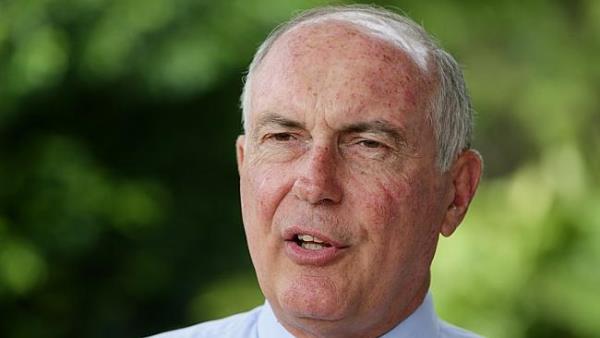By JONATHON HOWARD
IN part two of Noosa Today’s Q&A with Federal Wide Bay MP and Deputy Prime Minister Warren Truss, we discuss homeless concerns and whether the federal Coalition government is turning its back on those people living on benefits. Mr Truss’ responses are provided in full below.
ACCORDING to our local Salvation Army, there is a growing number of homeless and hungry families struggling to access limited services as they struggle to pay mounting debts and increasing bills. What is the government’s plan to address the rising cost of living? And how is the government supporting community groups and networks who are struggling to provide basic services to those in need?
I understand that there are people who are struggling with the cost of living and the government has a number of programs in place to assist people in times of need.
It is important to ensure that our social safety net is viable and the Coalition’s Budget has made some decisions to put government expenditure on a sustainable footing.
The abolition of the carbon tax and the retention of carbon tax compensation arrangements are designed to assist households that are experiencing financial difficulties.
The government is continuing to work with and support community service groups including State agencies, such as the Queensland Department of Housing, to deliver essential services to people in need.
New initiatives are being introduced, including the Families and Communities Program, Housing and Homelessness Program, and the Disability, Mental Health and Carers Program. The new programs are being delivered to streamline existing services and ensure that the best approaches are being used to address needs. The government is reducing duplication and regulation, implementing simpler financial and performance reporting, and providing a greater opportunity for innovation in the delivery of services to assist the sector.
The government is also re-establishing a Community Business Partnership to promote a culture of philanthropic giving and volunteering in Australia.
Is the government turning its back on those living on benefits? And how do you feel coastal towns and your electorate will benefit in the long term under proposed changes to Centrelink payments?
The government is making Australia’s welfare system sustainable and help people who are able to work to find jobs.
We are implementing a number of new programs to boost employment, which include:
A Job Commitment Bonus, to reward young, long-term unemployed job seekers aged 18-30 if they get and keep a job. Eligible job seekers receiving payments for at least 12 months will receive $2500 if they get a job and remain off welfare for 12 months. The same job seekers will be eligible for an additional $4000 if they remain in continuous work and off income support for a total of 24 months.”
Relocation Assistance to Take Up a Job, aimed at providing relocation assistance for people who have been on certain welfare payments for at least 12 months. Up to $6000 will be available to support eligible job seekers relocating to regional areas to take up a job. Eligible job seekers relocating to a metropolitan area from a regional area to take up a job may receive up to $3000. Families with dependent children will be provided with up to an extra $3000 to assist with the costs of moving.
Restart, an incentive that will provide a subsidy of up to $10,000 if employers hire a worker aged 50 and above. The subsidy applies to job seekers who have been on income support for six months or more and who are employed continuously for two years.
A Work for the Dole program that will help job seekers to transition from welfare to work by giving them the experience and skills they need to make them job ready.
The Coalition Government is acting to strengthen the economy by removing taxes and reducing regulation, to ease cost of living pressures, create confidence and support jobs growth, so that everyone who wants to work is able to.








